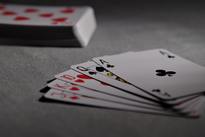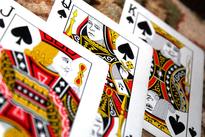Laugh and Sit in Awe of Tall Tales and Famous Poker Stories

Everyone has their own tall tales when it comes to DMH Poker. Perhaps even your father or your grandfather has had something to say that was a bit outrageous a time or two about his best starting hand. The following famous poker stories are generally believed to be true, however, and some of them are quite awe-inspiring and the reason why it's a good idea to manage your bankroll.
Richard Nixon's Political Career
Believe it or not, there are reports that President Richard Nixon funded his campaign with funds that he won playing poker while he was in the Navy during the Second World War. He wrote in his biography that he "learned that the people who have the cards are the ones who talk the least" and he was generally right in his statement.
The Term "Nuts" and How It Came to Be
Someone who is said to have the "nuts" has an unbeatable hand. This term is said to have originated in the American West back in the late 1700s or early 1800s where people would put their wagons and horses up for stake in hopes of winning big. If someone chose to do so, he would need to take the nuts from the wheel and put them in the pot so that he could not run away.
Two WSOP Wins with 10-2 in the Hole

WSOP fans know the name Doyle Brunson like the backs of their hands. He won the WSOP two years in a row in 1976 and 1977 which is a major feat on its own, but just how he did it is simply amazing. A 10 and 2 in the hole has a low chance of winning anyway, but he managed to walk away much, much richer - TWICE! As such, people who have this combination often refer to it is a "Doyle Brunson".
The White Sox Controversy and Poker
Of all of the famous poker stories that are true rather than tall tales, the one involving Arnold Rothstein is perhaps the most well-known. Rothstein is widely known as the mastermind behind the loss of the 1919 World Series in which $80,000 was paid to the White Sox players to lose the game. He was shot in New York, apparently for refusing to make good on a massive loss during a hand of stud.




